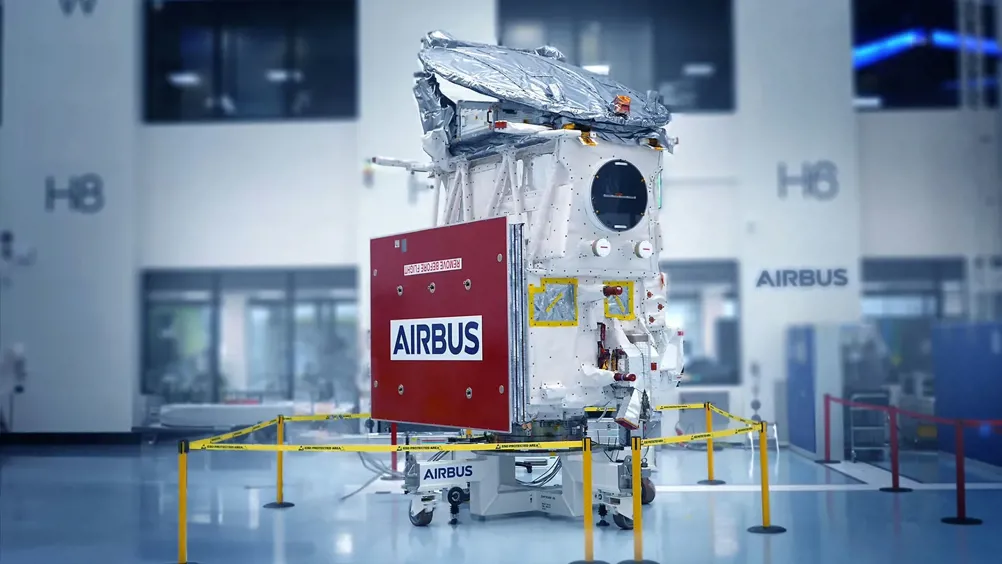Airbus-built EarthCARE (Earth Cloud Aerosol and Radiation Explorer) is a joint undertaking between the European and Japanese Space Agencies (ESA and JAXA).
The satellite will examine the role clouds and aerosols (tiny atmospheric particles) play in reflecting solar radiation back into space, cooling down the atmosphere, as well as in trapping infrared radiation emitted from the Earth’s surface, heating up the atmosphere.
“EarthCARE is ESA’s largest and most complex Earth Explorer spacecraft – a flagship mission whose data will help improve the accuracy and reliability of climate and numerical weather prediction models,” Alain Fauré, head of Space Systems at Airbus, said in a statement.
“International cooperation was key with more than 200 research institutes and 45 companies across Europe working hand in hand to deliver this spacecraft.”
The satellite will create vertical profiles of natural and human-made aerosols, register the distribution of water droplets and ice crystals and how they are transported in clouds, and provide input to improve the modelling of the warming climate and weather forecasting.
Aerosols influence the life cycle of clouds, and so contribute indirectly to how they give off radiation. Airbus said that measuring them will give a better understanding of the Earth’s energy budget.

EarthCARE was developed, built and tested by experts from 15 European countries as well as Japan and Canada, under the leadership of Airbus, in Friedrichshafen, Germany.
The Airbus-built atmospheric lidar ATLID is one of the four instruments on the EarthCARE satellite, which the company said will provide the vertical profiles of aerosols and thin clouds.
The satellite also includes a Broad-Band Radiometer developed by ESA through European industry, a Multi-Spectral Imager developed by Airbus’ subsidiary Surrey Satellite Technology Limited and a Cloud Profiling Radar developed by JAXA.
This combination of instruments will allow scientists to directly assess the role of clouds and aerosols with one integrated satellite system, a world-first which Airbus said will reduce current uncertainties in this area of research.
EarthCARE will circle Earth in a Sun-synchronous 400km polar orbit crossing the equator in the early afternoon to optimise daylight conditions. Weighing 2.3 tonnes and measuring 18 metres long, once its solar panel and CPR instrument are deployed EarthCARE will be on duty for at least three years.
Visit our jobs site https://jobs.theengineer.co.uk/ to find out about some of the latest career opportunities at industry's biggest employers











PMI falls as manufacturers feel the squeeze
17 months or two and a half years - which is it?